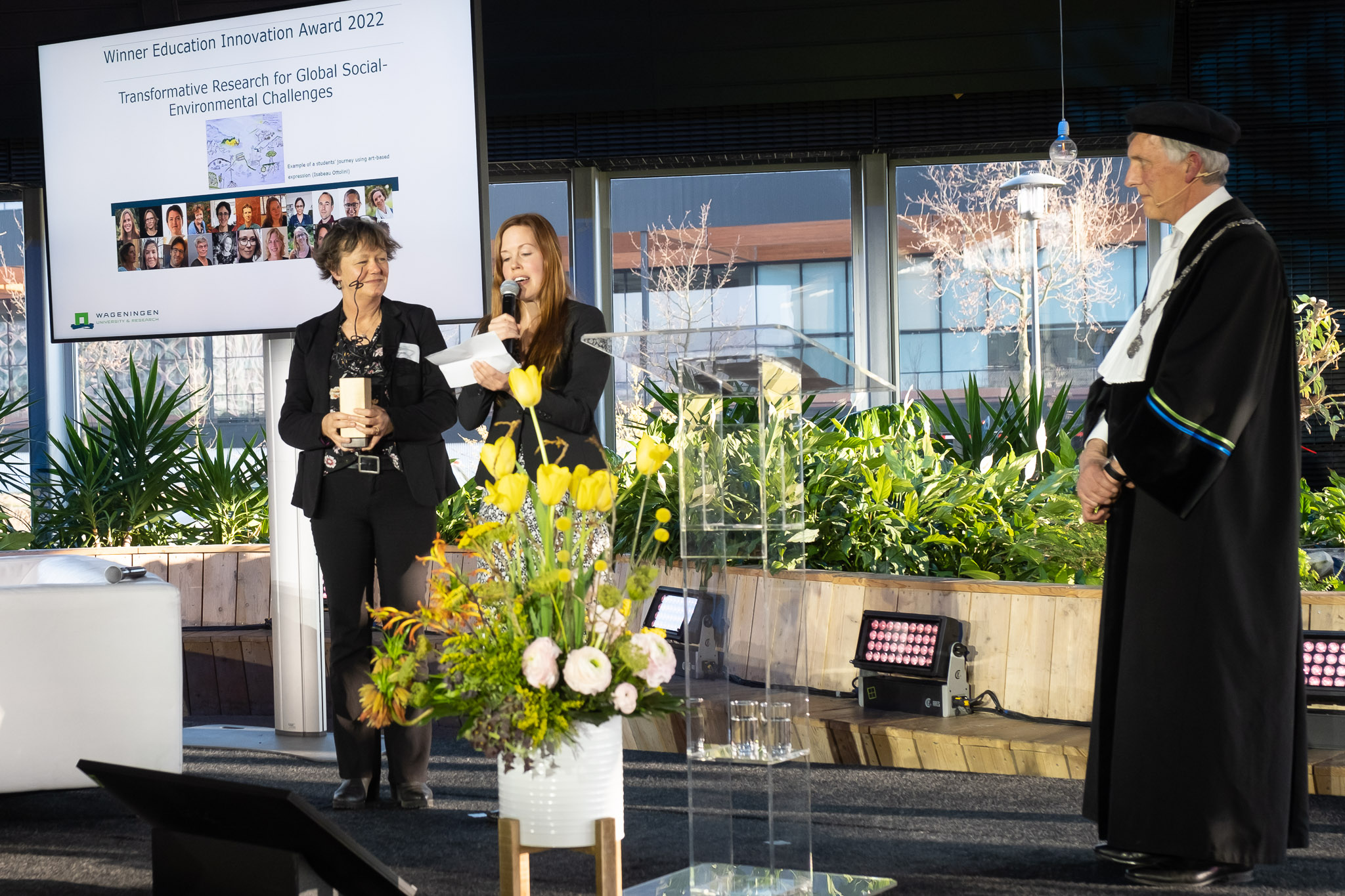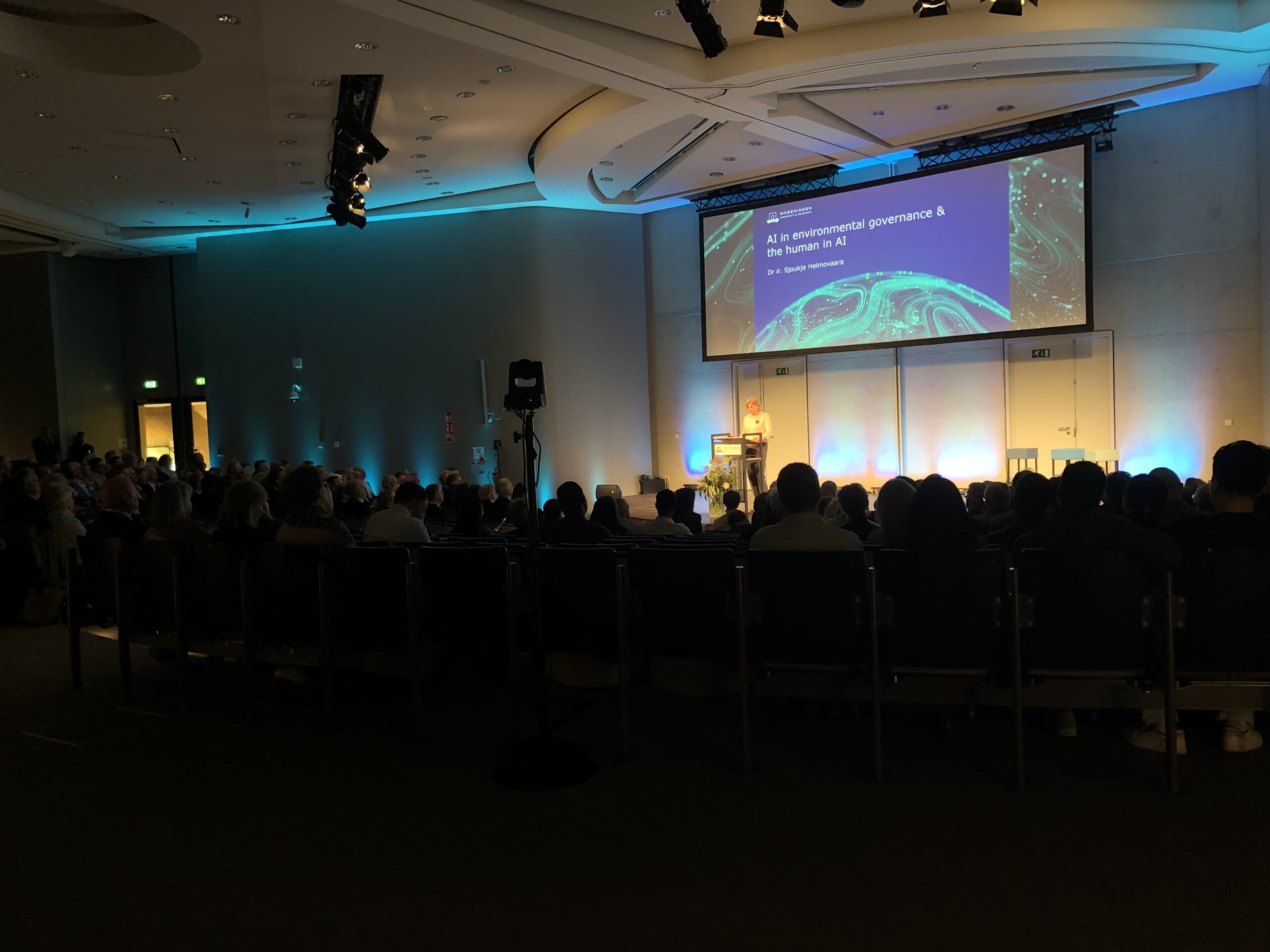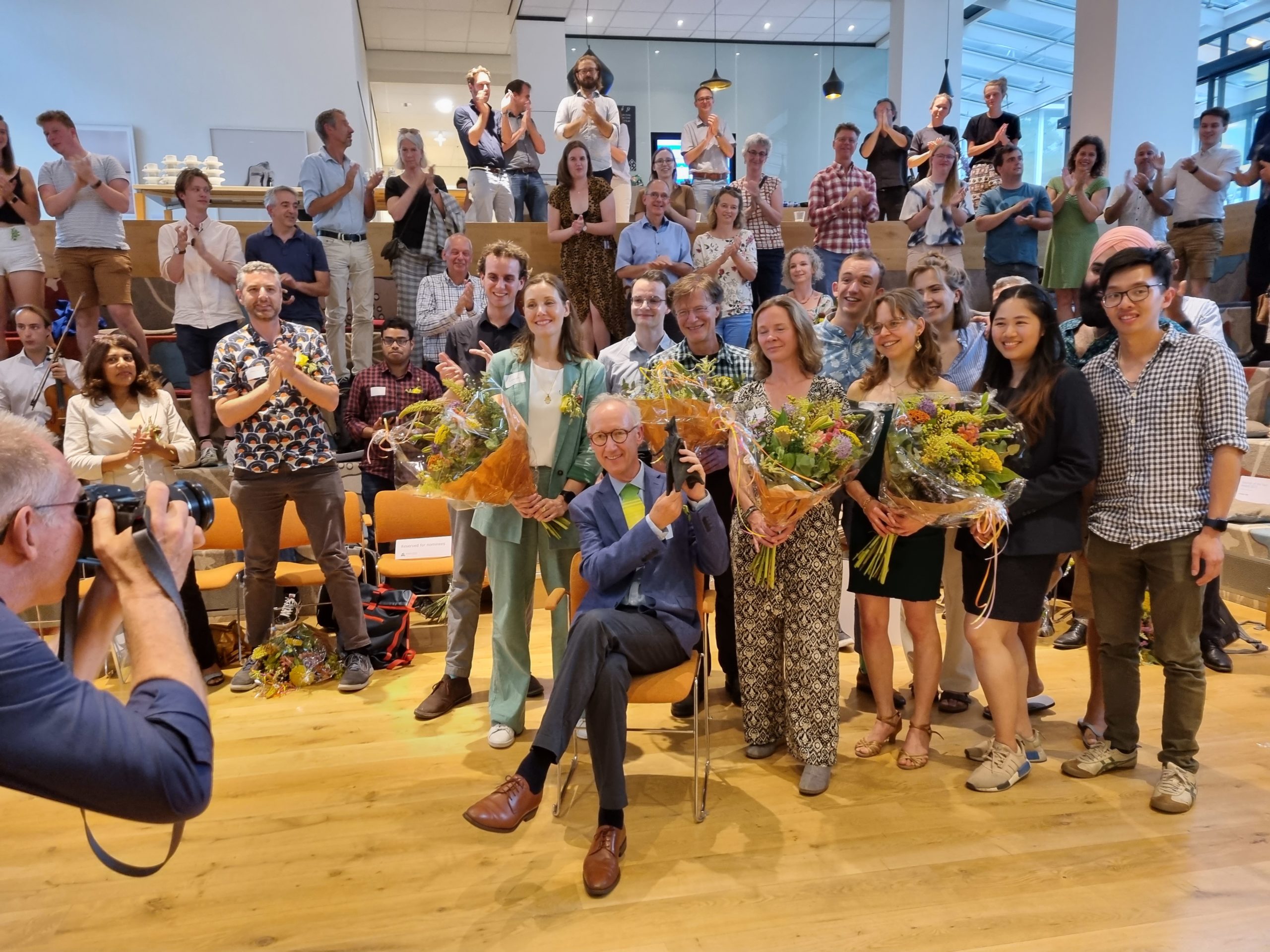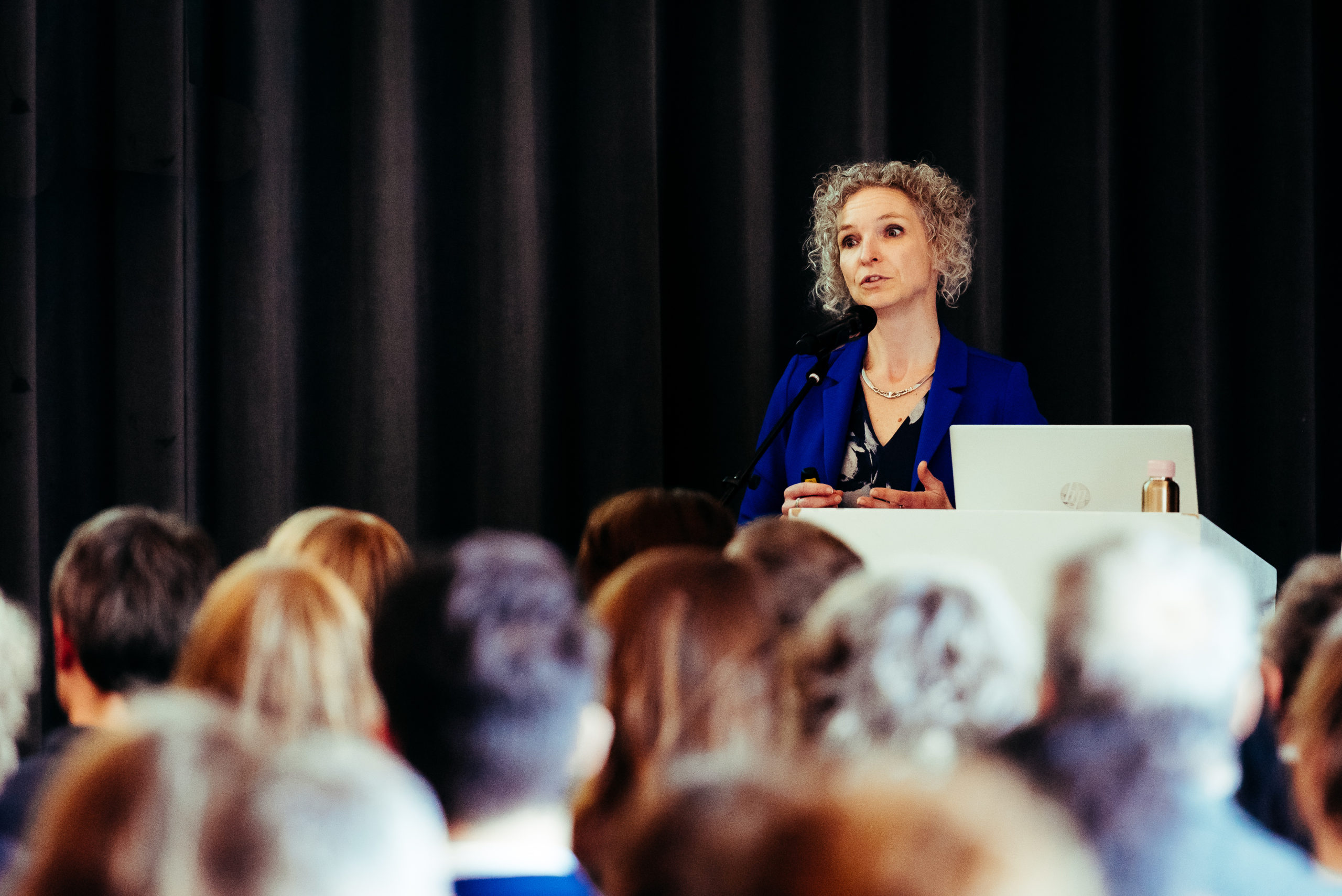Sixty people nominated 29 innovations, ranging from new courses and teaching methods to apps to teacher support initiatives. One person had nominated all WUR teachers for their performance during the covid pandemic.
A jury led by Professor of Education and Learning Sciences Perry den Brok was tasked with selecting a winner from among the nominees. There were multiple contenders, including the Peek-app and a mini lab sent by mail to students at home during the lockdown. In the end, the jury named Transformative Research for Global Social-Environmental Challenges the winner. This new PhD course revolves around how research can help transform society and the environment.
The course brings together teachers and PhD students from all parts of WUR and international partners like the Stockholm Resilience Centre. This makes Transformative Research ‘an innovation in the true WUR spirit of finding answers together’, says the jury, as it ‘brings together expertise from different domains, from experts within and outside academia; from different students and teachers.’
Furthermore, the course uses innovative, playful and art-based teaching methods, including forms of theatre-like roleplay. A unique aspect of this course is that students went through a process to transform their own understanding of how their research can contribute to societal transformation. They expressed these new narratives in creative ways, for example, in the form of music or poetry. Transformative Research helps learners express their knowledge and skills in entirely different and innovative ways, concludes the jury.
Challenging assumptions
The course was coordinated by Josie Chambers. ‘This course taught me the power of creating a learning space that challenges our assumptions in ways that allow us to see the humanity in others and feel hopeful about what we can achieve together. I believe this is the kind of feeling that can compel us to collaborate to address complex societal challenges.’ Therefore, Chambers argues, it is needed to create such spaces for all kinds of researchers and people in society: ‘Long past is the time where we assume that the main role of the scientist is to transfer knowledge or solutions to the world.’
Co-coordinator Esther Turnhout adds: ‘I believe we need to transform science and make it more open and democratic to better support sustainability transformations and ensure just and equitable outcomes. Teaching the course was incredibly rewarding and inspiring. It really showed that PhD students across natural and social science disciplines are looking for reflection and want to explore options to change research practices.’
Broadening the course
Jeanne Nel was also involved with the course design. ‘It is good to see WUR embracing new pioneering courses.’ During the award ceremony, the course coordinators thanked graduate school WIMEK (Wageningen Institute for Environment and Climate Research) for support in organizing the course.
The winners received a statue and 1000 euros worth of prize money, which they want to use to fund the development of the course into a collaboration between WUR, Utrecht University, University of Twente, and the Stockholm Resilience Center. They plan to hold a new version of the course in Autumn 2022.
To stay informed about the development of the Transformative Research course, follow Chambers, Turnhout and Nel on Twitter.

 Jeanne Nel and Josie Chambers with the award. Foto Guy Ackermans
Jeanne Nel and Josie Chambers with the award. Foto Guy Ackermans 

